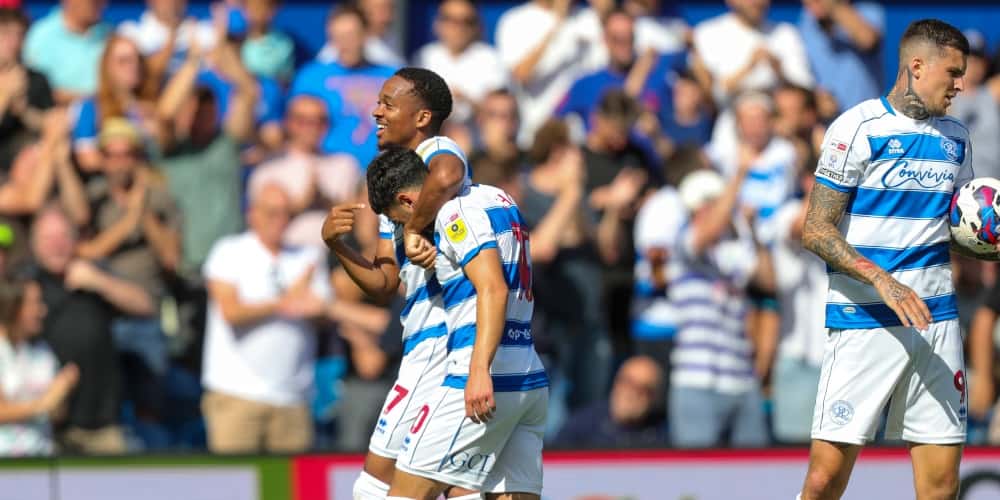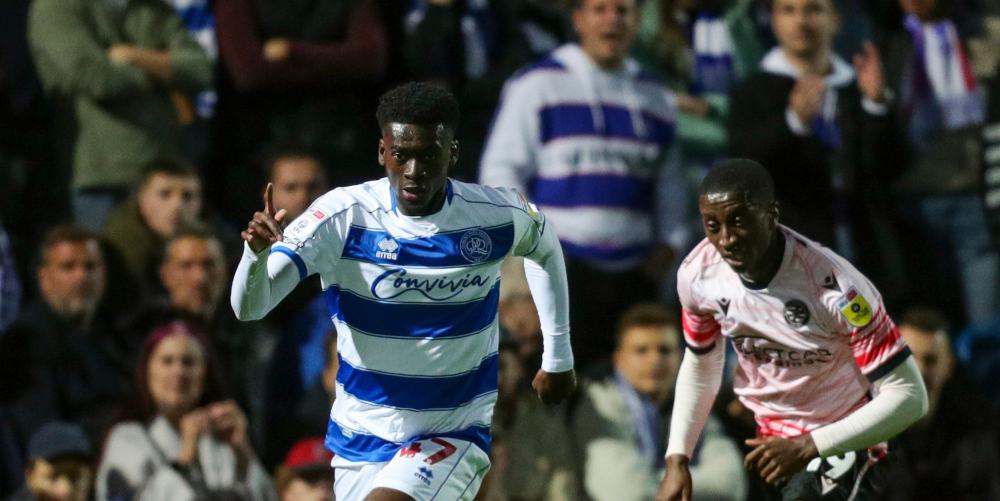What to expect from Neil Critchley as QPR boss
Neil Critchley has been named as QPR’s new head coach following the departure of former boss Mick Beale.
The 44-year-old has been out of work since leaving Aston Villa in October, where he was assistant manager to Steven Gerrard – a role he held for just four months.
Critchley left his job as boss of Championship side Blackpool after QPR appointed Gerrard’s former assistant Beale as their new head coach in June.
At Blackpool, Critchley won promotion from League One via the play-offs in his first full season in charge, having been appointed during the 2019/20 season, which was curtailed by the pandemic, before guiding the club to 16th in their first season back in the second tier.
It is his only first-team management job to date, but Critchley also comes to QPR with a stellar reputation as a coach, having previously managed Liverpool’s Under-18s and Under-23s.
So what can QPR expect from Critchley?
Flexibility, pragmatism and rotation
During his time at Blackpool, Critchley showed himself to be someone who was not afraid to change personnel or system depending on the task in front of his team.
His time at Blackpool will rightly be viewed as an overwhelming success. You only need to look at where the Seasiders are currently sat in the table to understand his impact on the team.
But it’s easy to forget that Critchley could have been sacked early on in his spell at the club. A sense of excitement among the Blackpool fanbase had been generated by some impressive signings going into his first full season but his side won just one of their opening seven games.
Critchley favoured an attacking 4-3-3 formation to start the campaign but his team were too open and conceded far too many goals. They were hammered 4-1 at home to Ipswich and sat second from bottom in the league after a 1-0 loss to Charlton in October.
Critchley recognised that his choice of system was not giving his team the best chance to win games, and a switch to 4-4-2 with two more defensive-minded, ball-winning midfielders shortly after reaped enormous rewards. Blackpool never looked back.
Did Critchley want to switch from his original preference or plan to use a 4-4-2 at the start of the season? Probably not. But he recognised what needed to be done with the squad he had.
Blackpool were superb out of possession and defensively that season, finishing with the best defensive record in League One, and his proven record of organising a team to become incredibly difficult to break down should provide enormous encouragement to QPR fans.
Critchley has used various other shapes too depending on the opposition faced. His tactical decisions and instructions, including on who played, hinged on how he believed his team could best hurt who they were playing, especially in the Championship when Pool were often going into games as underdogs. And he usually got it right.
“We worked on it yesterday. The gaffer said they were vulnerable at the back post and as I keep saying, he’s normally always right and he’s got another one right,” striker Gary Madine said after scoring the only goal (with a back-post header) of the game against Swansea last season.
One of Critchley’s biggest strengths is his ability to identify weaknesses, and create and practise specific game plans to exploit them.
Fans might look at Critchley’s preference for a 4-4-2 shape while at Blackpool and wonder how that would work at QPR. But Critchley will set up in the way he thinks will give QPR the best chance of getting results based on the players in the squad, and he will not be afraid to change if it is not going well.
Don’t be surprised to see rotation in his starting 11 based on the opposition and the players he feels are best suited to that respective task. He very rarely named an unchanged team from game to game while in charge of Blackpool.
But it will be interesting to see whether Critchley’s tinkering and tactical tweaks will continue at QPR, given the superior squad at his disposal compared to that of Blackpool means his new side will go into games as favourites far more often.
Continuity from Beale
Critchley was very much seen as the continuity candidate by those making the decisions at QPR during the appointment process.
Beale was appointed partly because of his experience working with young players and bringing them on, something which has also been a focus of Critchley’s career to date. Like Beale, he is a former academy coach and has worked with well-known players like Trent Alexander-Arnold and Harry Wilson at Liverpool.
His track record of players improving under him is very impressive, including while in charge at Blackpool. Defender Marvin Ekpiteta, striker Jerry Yates and winger Josh Bowler are just some of those who came on leaps and bounds while he was in charge.
Having a coach who gives younger players the best opportunity to improve is massively important for QPR, given the situation the club is in. Financial fair play restrictions make life for clubs like Rangers extremely difficult, and having saleable assets is a necessity. The business side of football means it is not just about results on the pitch.
Ilias Chair and Chris Willock were having excellent seasons under Beale prior to his departure. Sinclair Armstrong also looks like an exciting prospect after being handed a first-team opportunity.

For QPR, the hope will very much be that Critchley can continue to help players who will hopefully have their best years ahead of them to progress and develop. It is an enormous part of his remit.
Target current and former Premier League academy youngsters
With that in mind, the recruitment – as it was under Beale in the one transfer window he spent in charge of the club – will likely be focused on those players whose best days are ahead of them.
There will likely be an emphasis on recruiting players who Critchley knows well from his days as a youth coach. At Blackpool, he signed several players – both on loan and permanently – who had spent time at the academies of big Premier League clubs.
Those include Callum Connolly, Josh Bowler and Ellis Simms (Everton), Dan Grimshaw (Manchester City), Demetri Mitchell (Manchester United), Dan Ballard (Arsenal) and Dujon Sterling (Chelsea), among others.
Under Beale, QPR signed Jake Clarke-Salter after he left Chelsea, Tim Iroegbunam from Aston Villa, Ethan Laird from Manchester United and Taylor Richards from Brighton. Elijah Dixon-Bonner also came to the club mid-season via Liverpool, and Kenneth Paal was a player Beale had first encountered when managing the youth teams at Chelsea abroad.

By appointing Critchley, QPR will hope his knowledge of current and former academy prospects, his previous relationships with them, and their knowledge of him will help to persuade more of these players to join QPR over the many other competing clubs who will be hoping they can do the same. And the club should, ideally, benefit from that in the long run.
A different character
But for all their similarities in terms of background, Beale and Critchley are very different characters.
It’s not hard to imagine Beale erupting after a poor half of football, or at a player for not following instructions. He relished in telling the media about his “honest conversations” with players.
Critchley, on the other hand, is a much more reserved type. He is softly spoken and rarely let his temper show in his post-match duties while in charge at Blackpool. Conversely, Beale was not afraid to let his frustration be known.
Critchley clearly has skill as a communicator or he would not have done so well at Blackpool, but the QPR players will likely experience a change in approach in the way that communication is done compared with their previous boss.
Ultimately, the biggest way Critchley can get the players to buy in is by having his ideas and tactical decisions pay off and come to fruition on the pitch, as he did at Blackpool, to earn the trust of the players.

18/12/2022 @ 8:52 am
Really informative article. I feel we are really fortunate to have Neil at the club and should give him 100 % support. Come on you R’s!!!
13/12/2022 @ 8:21 am
“where the Seasiders are currently sat”. SITTING, not SAT. Call yourself a journalist?
12/12/2022 @ 5:56 pm
You cant afford to lose the dressing room – sounds Like MB could have done just that. and moved on before getting found out.